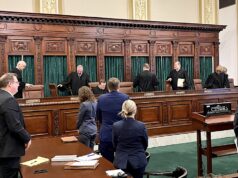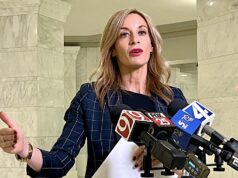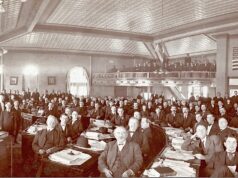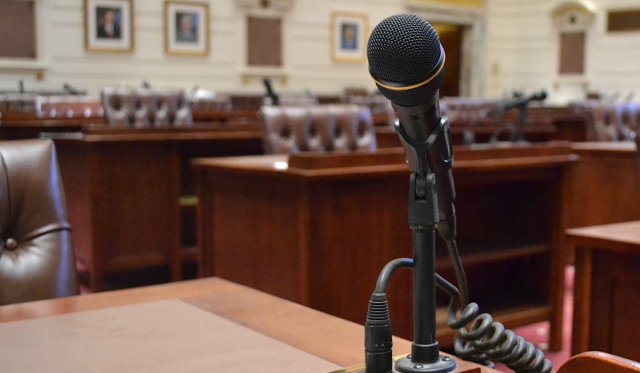
When the Oklahoma Legislature convenes the morning of Monday, April 6, to address a health emergency declaration and a state revenue failure, it will do so under a set of rules, protocols and circumstances just as novel as the coronavirus that has thrown the entire world into social, economic and civic upheaval.
Less than an hour after sunrise, House and Senate leaders will begin making their proverbial sausage. By 8 a.m. they will have gaveled into a special legislative session statutorily required by Gov. Kevin Stitt’s declaration of COVID-19 as a “health emergency.” His April 2 declaration triggered the Catastrophic Health Emergency Powers Act for the first time in state history, which grants the governor special expenditure powers and the ability to suspend laws or administrative rules deemed a hindrance to combating the health emergency.
Using a combination of proxy voting and protocols to ensure only 10 people are in its chamber at one time, the House of Representatives is expected to hear HCR 1001X first, with most members listening to the proceedings from their Capitol offices or their personal homes.
HCR 1001X would approve Stitt’s executive order declaring the health emergency and would stipulate the Legislature’s approval is contingent upon the governor providing notices to House and Senate leadership of any amendment to his health emergency executive order, as well as “specific statutes and regulations that will be suspended” and any “further actions the governor deems necessary to carry out” his executive order.
Asked April 2 if he would commit to alerting the Oklahoma Legislature, media and the public to all laws or rules he suspends, Stitt responded in the affirmative.
“Absolutely,” the first-term governor said. “We want to be transparent, so we will let you know — the media know — if there are any rules that are suspended. This is really an unprecedented time.”
The House is then expected to hear HCR 1002X, which simply allows the two chambers to adjourn special session for a period of more than three days.
Both measures would then go to the Senate for approval.
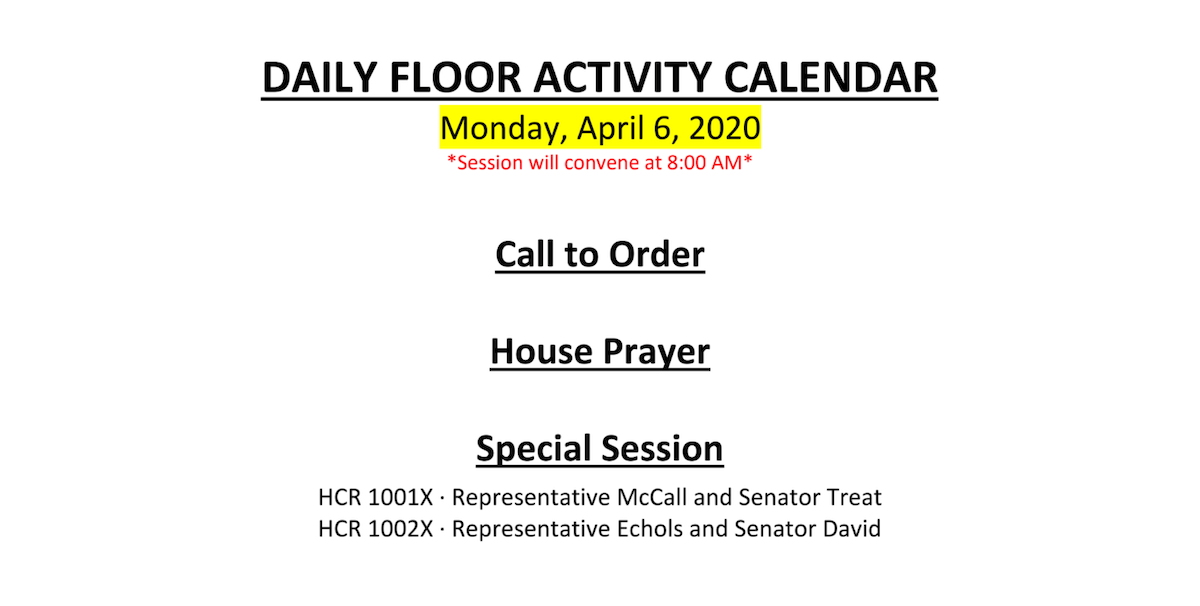
Gavel out of special session, gavel into regular session
Soon after each chamber of the Oklahoma Legislature gavels out of special session, the House and Senate will return to their 2020 regular session for the first time since March 17, when lawmakers changed the Open Meeting Act and adjourned indefinitely as COVID-19 began spreading through the Capitol and several counties.
The past three weeks have been a whirlwind, as more than 1,200 Oklahomans have been diagnosed with COVID-19. More than 40 have died, and local economic shutdowns have combined with a global implosion of the oil market to wreck state revenues. As a result, the Oklahoma Board of Equalization is scheduled to meet at 1 p.m. Monday via Zoom conference call to certify a $416 million revenue failure for the final quarter of this fiscal year, which ends June 30.
To fill that budget hole, lawmakers are expected to amend and pass three bills. To expedite the process, the House is expected to amend three Senate bills from 2019 that stalled in the House’s possession last session. The House will need two-thirds approval of its currently 100-member body to suspend a rule and bring the bills from the House Appropriations and Budget Committee directly to the floor. At that point, the bills would be amended with language to address the $416 million revenue failure.
The bill numbers appear below, but each is linked to a House amendment displaying the language to be adopted for the Senate bills:
- SB 617 allowing the Office of Management and Enterprise Services to withdraw up to half of the balance of the Revenue Stabilization Fund to distribute to agencies to avoid cuts owing to the revenue failure;
- SB 199 appropriating $302,339,481 from the Constitutional Reserve Fund (commonly called the Rainy Day Fund) to the General Revenue Fund;
- SB 1053 appropriating $201,559,654 from the Constitutional Reserve Fund to the Revenue Stabilization Fund, as allowed by the governor’s emergency declaration.
If the bills are advanced to the Senate, two-thirds of its 47 members could suspend a rule and hear those bills Monday as well.
At 8 p.m. Sunday, the Senate published its agenda for regular session, which features two measures:
- SR 16 suspending three sets of Senate rules;
- SCR 10 creating the oversight committee of the Legislative Office for Fiscal Transparency.
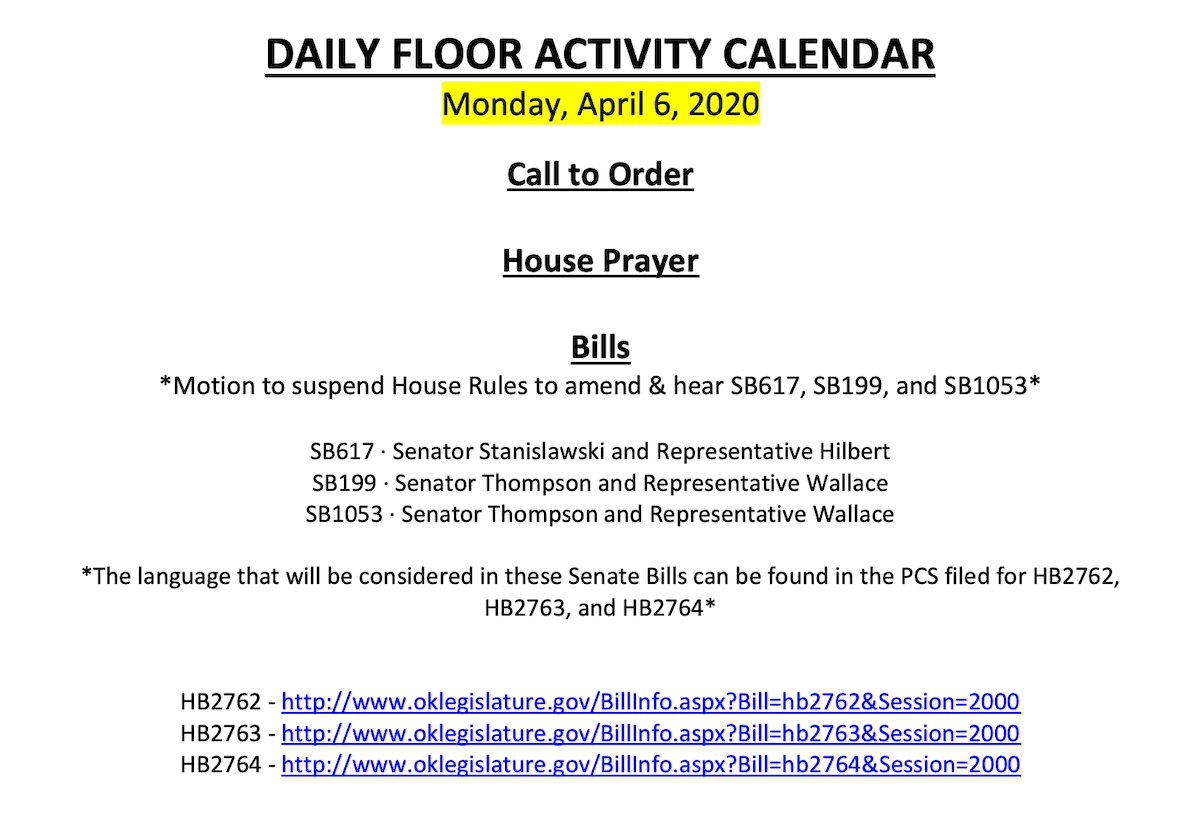
How do you make sausage during a pandemic? Very carefully
House Majority Floor Leader Jon Echols (R-OKC) told media Friday that the process of hearing and voting on bills will be substantially slower than normal owing to the safety protocols put in place.
Echols also said he expects more than 60 House GOP members and roughly a dozen House Democrats in the building Monday. A limited number of legislative staff will be in the Capitol as well, and media will be the only members of the public allowed inside. Everyone entering the Capitol will have their temperature taken, with anyone reading above 100.4 degrees being asked to go home.
House Speaker Pro Tem Harold Wright (R-Weatherford) will preside over the House floor, with Echols, House Minority Leader Emily Virgin (D-OKC) and whichever member is presenting a bill allowed in the chamber. House parliamentarian C.J. Cavin will also be in the chamber, Echols said.
“All of the other members will be listening from their offices (or at home) where they can listen to the live-stream of the floor,” Echols said. “They can ask questions by texting the parliamentarian. The parliamentarian will put their name in the queue, and then Harold Wright will announce — where everyone can hear — who [is] asking questions. So they’ll be coming up to ask questions throughout this process, again, the entire time never having more than 10 people in the chamber and keeping a proper social distance. We will handle debate the exact same way.”
Echols outlined the voting procedures that will be used in the House.
“I have broken up the majority party into groups of eight. The minority leader has broken her party up into groups,” Echols said. “Myself and the minority leader will leave the floor, so you will just be left with the two people on the dias. And we will bring people into vote eight members at a time, again the entire time, no more than 10 people in a room.”
He explained the purpose of the new protocols and emphasized his collaboration with Virgin, who said she is supportive of the safety efforts.
“What we are attempting to do here is set a good example for the state of Oklahoma. We have been asked by the governor, by the president, by Dr. (Anthony) Fauci, as a society to have no more than 10 people in a room and to maintain social distancing,” Echols said. “So we are doing everything in our power to properly set up [protocols] to protect everyone who goes through this process.”
But speaking via Go To Meeting video conference Friday, Echols emphasized the difference between protocols and rules.
“These are protocols. The House leadership and the minority leadership doesn’t have the ability to stop a member [by force] if they would like to violate the protocols. But it is our anticipation they will do the right thing,” Echols said. “The goal was to be able to continue to perform the proper functions of government and perform them as safely as possible.”
Senate President Pro Tempore Greg Treat (R-OKC) addressed media by video conference April 2 and said the Senate would also be working to follow the Centers for Disease Control and Prevention guidelines for limiting group gatherings to 10 or fewer people at a time.
“We are working on a floor management plan to try to make sure that we minimize contact between senators and try to keep up with the spirit and the procedure recommended by CDC,” Treat said.
But unlike the House, the Senate has not yet amended its rules to allow proxy voting for members who choose to remain home.
Watch the Oklahoma Legislature from your home or office
To follow and watch the actions of the Oklahoma Legislature from your computer, visit the appropriate webpages:
- Oklahoma State Senate live chamber proceedings
- Oklahoma State Senate regular floor agenda
- Oklahoma House of Representatives live chamber proceedings
- Oklahoma House of Representatives regular floor agenda
(Update: This story was updated at 8:15 p.m. Sunday, April 5, to add the Senate floor agenda details for its April 6 regular session work and correct reference to the current number of members of the Senate.)










